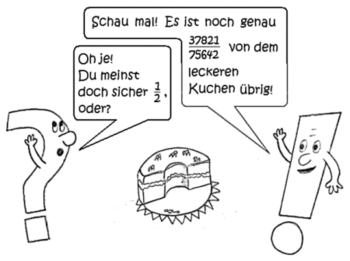6b 2013 14
|
Mathematik
|
|
Englisch
GRAMMAR Exercises (WORKSHEET)Last week Donna wasn’t able to (not Fähigkeit) find José in the playground. Later on she tried to talk to him but she had lessons and she wasn’t allowed (Verbot) to leave the classroom. She wanted to tell him that Tina wasn’t able to (not Fähigkeit) take part in the play because she had to (Verpflichtung) visit her sick aunt in Florida. Donna: “Next week she will be able to .(Fähigkeit) to come back, but it might be too late to rehearse for the play.” José: “That’s too bad. I was looking forward to seeing her in the play. I am allowed to .(Erlaubnis) write the report about the play for the school magazine. I wanted to write a nice review about Tina’s performance. She’s always so good at acting.” Donna: “Yesterday I tried to call Tina at her aunt’s but I haven’t been able (not Fähigkeit) to get her on the phone yet. Maybe we can ask her to come home earlier. I will have(Verpflichtung) to call her later tonight.”
On Make a Difference Day last Wednesday José played (play) the trumpet in his dad’s band to make some money. The people liked (like) the concert and gave a lot of money for toys for the children’s hospital. José: “Look, Sally. We have made (make) $ 120. That is (be) a lot of money. We haven’t bought (not buy) any toys yet but Donna and I are going to go shopping (go shopping) next Saturday. We have already made(already make) plans and I think Donna’s parents will take (take) us to the shopping center.” Sally: “That sounds (sound) great, José. If I am (be) home on Saturday, I will come (come) with you.“ José: “Thank you, Sally. I wanted (want) to ask you anyway. Let’s call Ben and ask him if he has planned (plan) anything for Saturday yet.” Text ProductionPICTURE STORY You can start your story with "once upon a time" (bei Märchen, Legenden) In the beginning you should answer the questions: WHERE? WHEN? and WHO? Once upon a time there was a girl named Marian and she lived in a castle in Nottingham during the Middle Ages Then you tell the story. Tipps:
VocabularyExercisesNEW (June,30 2014)
Simple Past or Present Perfect 2
Simple Past or Present Perfect 1 Simple Past or Present Perfect 2
Subject or object of the relative clause
Lösungen a) It an orange vegetable in which people put candles on Halloween = pumpkin b) Opposite of light= dark(ness) c) A person which is dead but still "lives" = ghost d) When you talk to God, you say a .....= prayer e) It's sweet and children usually like it (American word). = candy f) Singers use it so there voice is louder than normal. = microphone g) It the language the Romans spoke. = Latin
|


